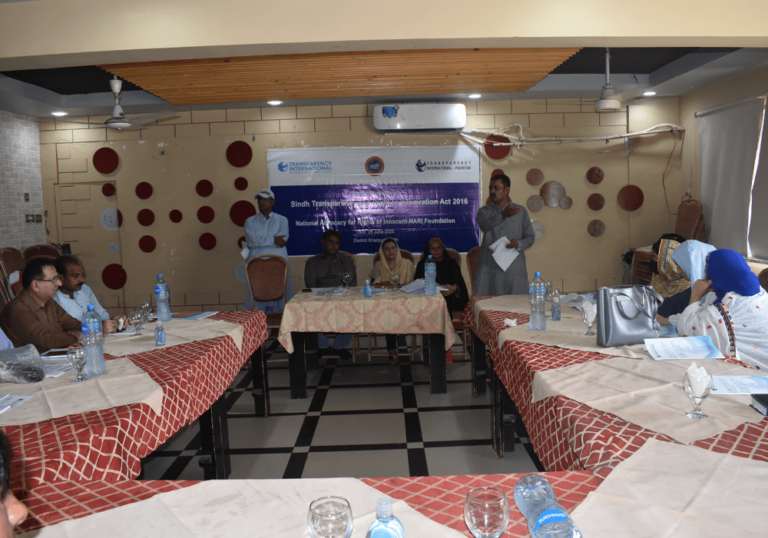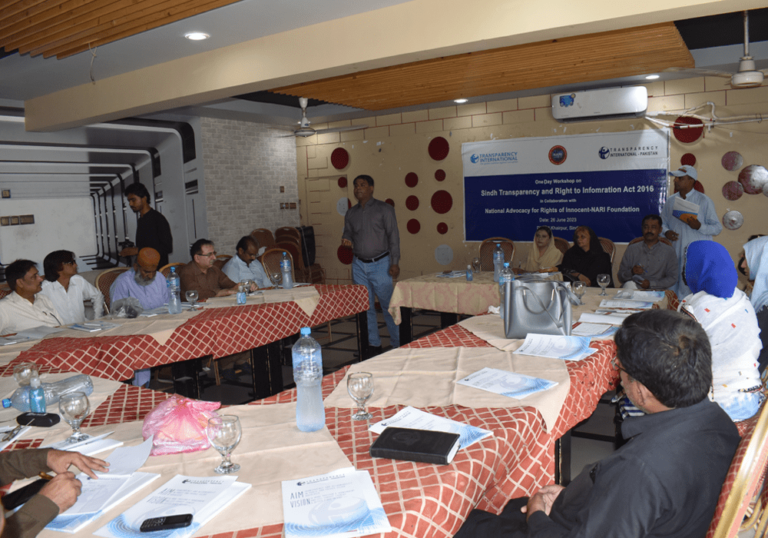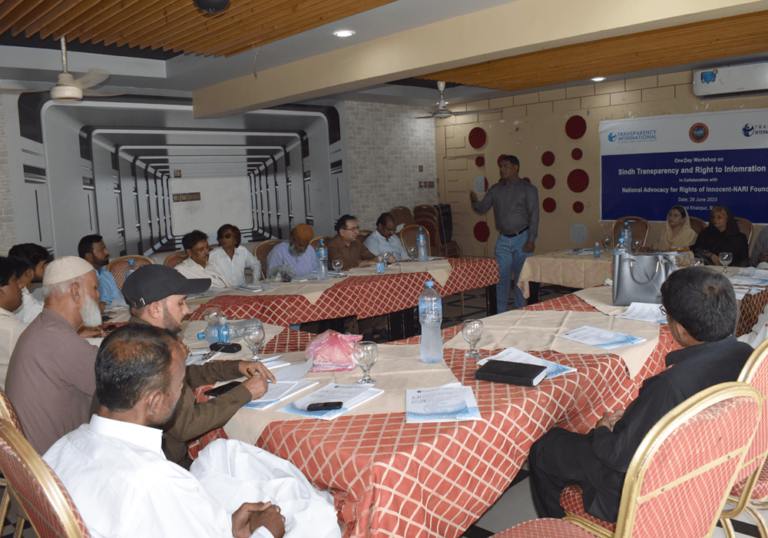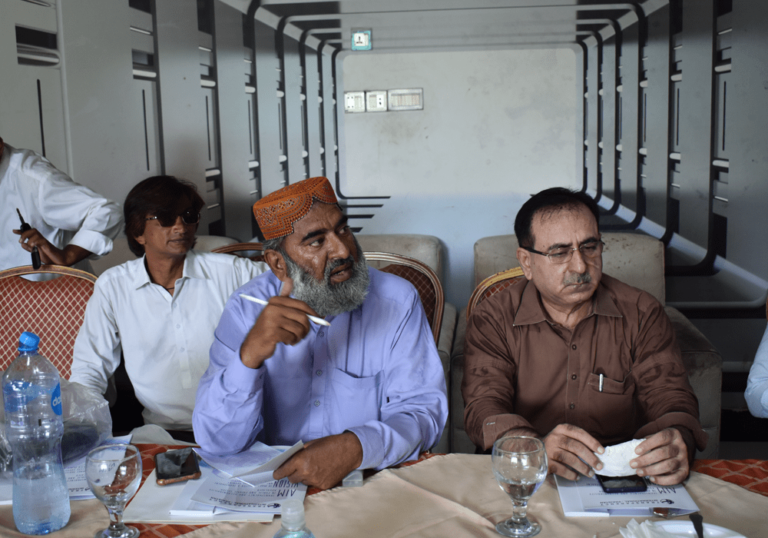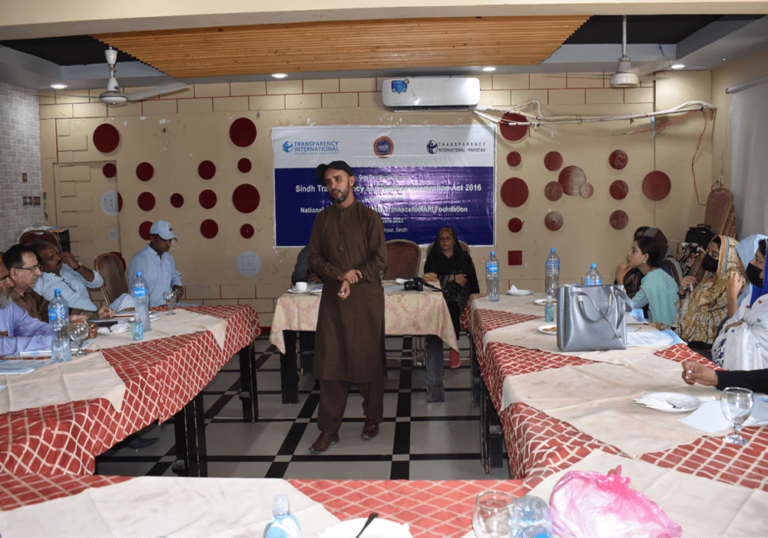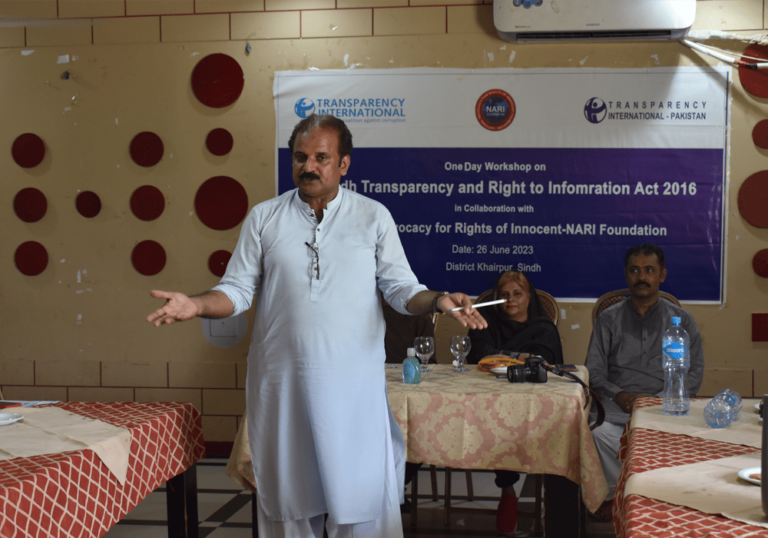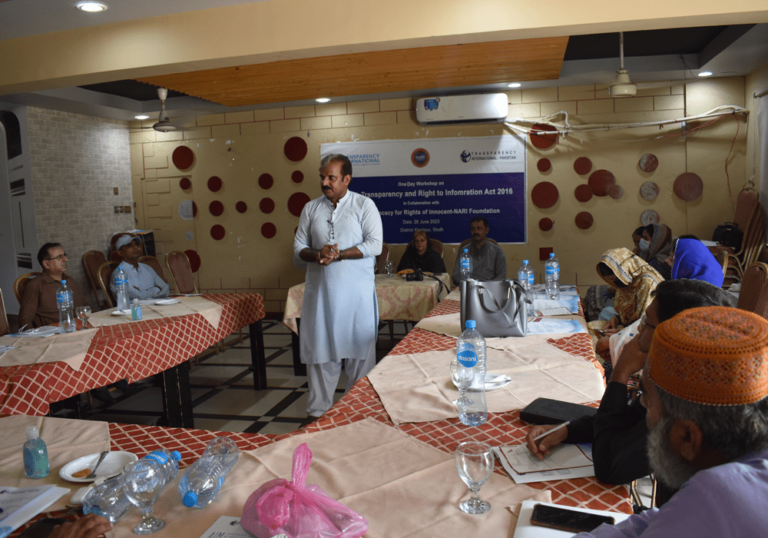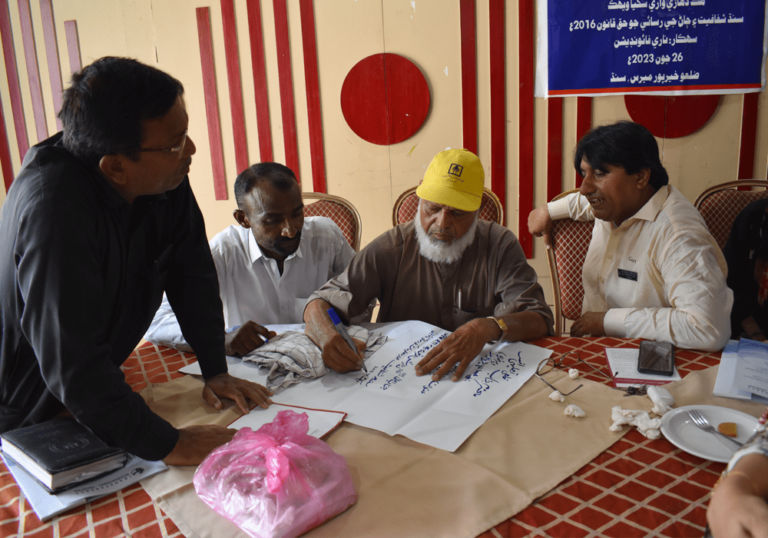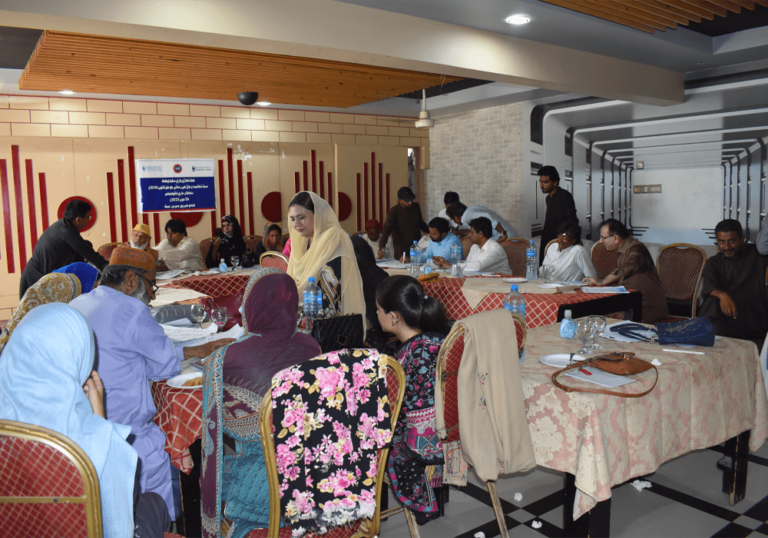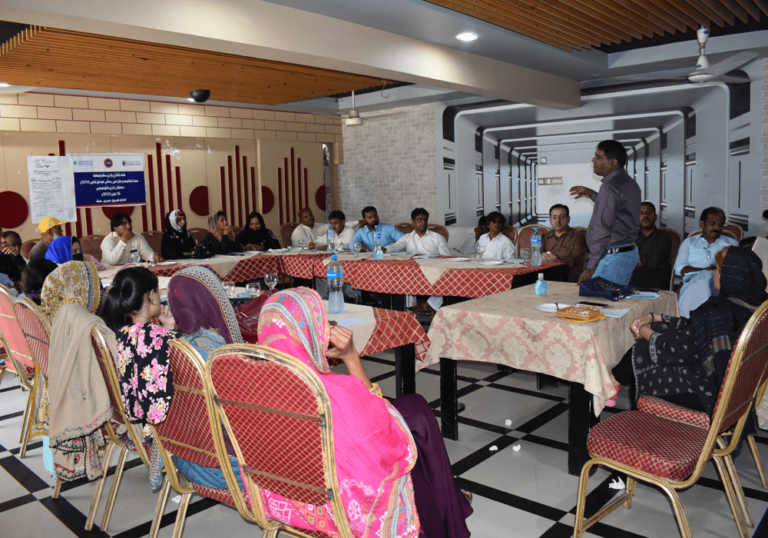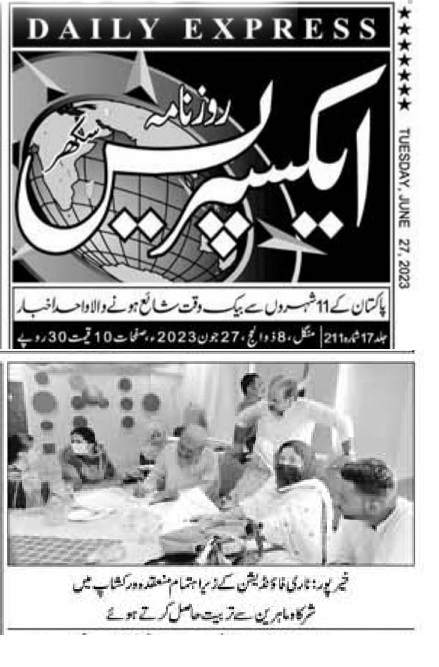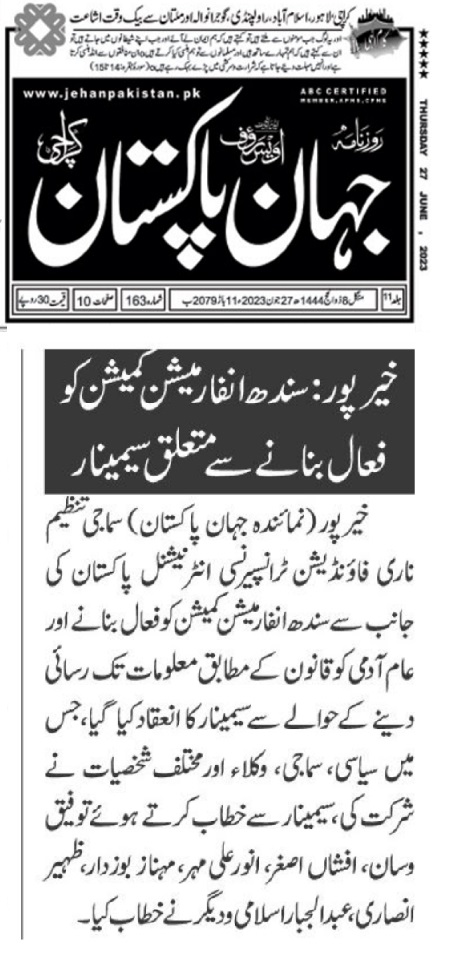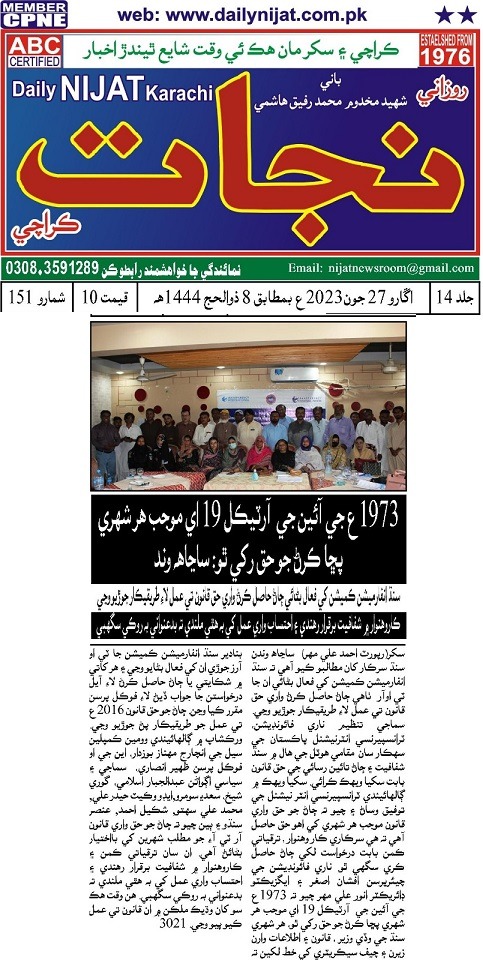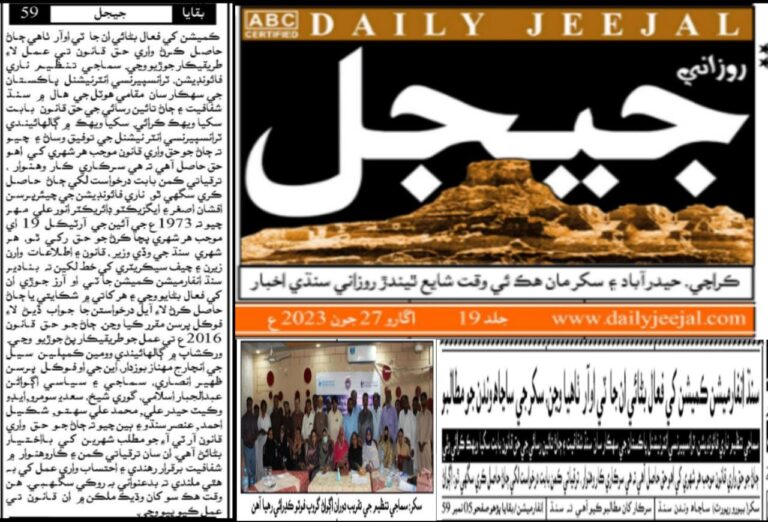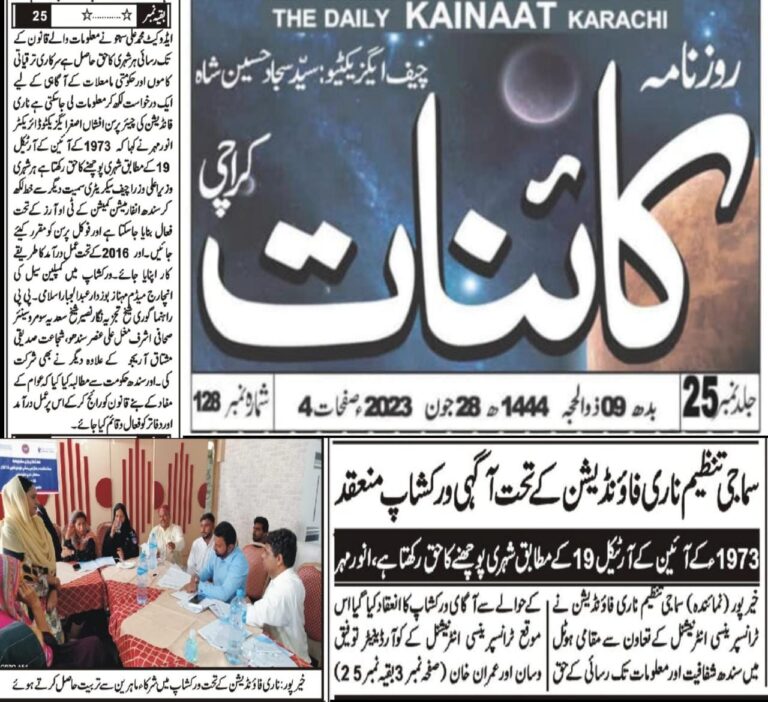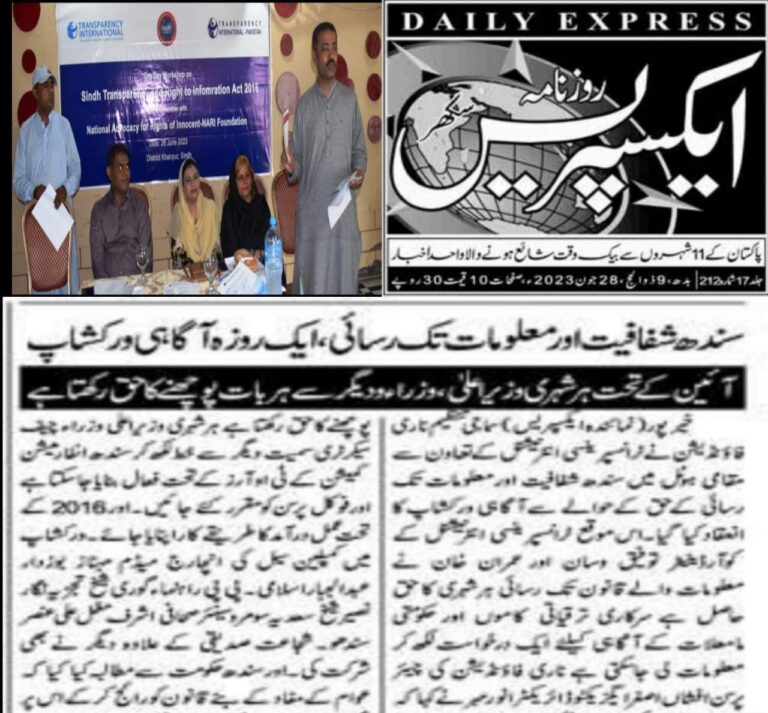- Home
- One Day Workshop on Sindh Transparency and Right to Information Act 2016
One Day Workshop on Sindh Transparency and Right to Information Act 2016
One Day Workshop on Sindh Transparency and Right to Information Act 2016
Venue: Café Al-Manzar, Khairpur, Sindh
Date: 26th June 2023
Transparency International Pakistan organized a One-Day Workshop on the Sindh Transparency and Right to Information Act 2016 on 26th June 2023 at Café Al-Manzar, Khairpur Mir’s, Sindh. Around 35 participants representing Civil Society Organizations (CSOs), journalists, and lawyers working on the Right to Information, Human Rights, and Institutional Development at the district level attended the workshop.
The event began with the recitation of the Holy Quran. A round of introductions was held, after which Mr. Anwar Ali Mahar, Chief Executive Officer of the National Advocacy for Rights of Innocent – NARI Foundation, welcomed the participants and shared the objectives of the one-day Workshop on the Sindh Transparency and Right to Information Act 2016.
Afterwards, Mr. Toufique Wassan, Project Coordinator at Transparency International Pakistan, discussed the overview of the legislation and its implementation status at the departmental level. He briefly explained that, in light of Article 19-A of the Constitution of Pakistan, every citizen is entitled to question public bodies. All the financial resources of the state belong to the people of Pakistan, and the government is the custodian of these resources. Therefore, every citizen has the right to ask government institutions/departments and hold them accountable. He further shared that, after the 18th Constitutional Amendment, provinces have autonomy to legislate on any public interest matters. Consequently, there are provincial RTI laws applicable to their respective provincial departments, along with the Right of Access to Information Act 2017 at the federal level, which is applicable to all federal institutions/departments. He discussed that in Sindh, there is the Sindh Transparency and Right to Information Act 2016, which was unanimously approved by the Provincial Assembly of Sindh on 13th March 2017. This law protects the right of access to information for the citizens of Sindh Province. Every citizen can ask/raise questions to any provincial department by submitting an RTI request, and the relevant department is obligated to provide the information within 15 days. If any official declines or fails to provide the requested information, the applicant can file a complaint against that official with the Sindh Information Commission. The Sindh Information Commission is an appellate body responsible for ensuring the implementation of the Sindh RTI Law. If any applicant files a complaint against any official, the commission will issue a notice to the relevant official and resolve the matter within 45 working days. He further emphasized that journalists can use RTI laws for investigative journalism, citing several examples of news stories through which journalists have highlighted issues to improve public service delivery at the grassroots level. In conclusion, he emphasized that every citizen should file an RTI Request to expose corrupt practices and improve public service delivery.
Afterwards, Mr. Muhammad Ali Sahto, Advocate and RTI Activist, divided the participants into 4 groups and assigned them to file RTI requests to the Municipal Services, Revenue Department, Planning and Development, and Women Development Department.
In the end, Ms. Afshan Asghar, Chairperson of the NARI Foundation, thanked the participants and concluded the session.


